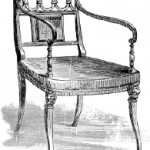In my last article I wrote about a particular audience of readers whom I called the “black and white team.” These readers enjoy stories where clearly defined heroes and villains face off in battles of good vs. evil. These stories can feature complex interplay between the heroes (and also between the villains), but in the end, there is never any question as to which side is “good”, and which is “bad”. Facing off against the “black and white” team is the “grey camp,” who are looking for something different from their fiction.
I first encountered the “grey camp” as a group of people who’d watched a cartoon series and realized that they sympathized with the villains moreso than the heroes! To their minds, the villains were strong, assertive, independent and persistent, whereas the heroes were passive, forever reacting to the villains instead of taking their own initiative, chastened by their leader if they went off on their own. Small moments of dialogue and animation showed hints of affection between the villainous characters, indicating that the villains just might have a “life” outside of fighting the heroes.
This fandom’s “grey camp” hoped for more fiction that would develop the villains as rounded characters.. They argued that fans could care about the “bad guys” as much as they cared about the heroes. As it turns out, some of the ongoing fiction has begun presenting the villains as characters with conflicting beliefs, legitimate grievances, and admirable traits of their own.
These stories provide a challenge in that the protagonist must have enough positive traits for the reader to be interested in her and care about her actions, but she also must be “villainous” enough to be a credible member of the “enemy” side. I think about “All Quiet on the Western Front,” a novel where the main character is a German soldier in the First World War. Originally written in German, the translation into English allowed English readers to see the conflict “through enemy eyes.” In other cases, the protagonists may do “bad” things, but the enemies they are fighting are worse, and therefore readers feel good about cheering for these anti-heroes.
Taken one step further, the “grey camp’s” stories can go beyond the good guy/bad guy dichotomy to show complex situations where two sides, both with positive and negative aspects, are set against one another. Or, the hero might find herself with an ally who behaves in ways she finds disturbing or immoral. These stories challenge the reader to see issues from different points of view. They illustrate how upbringing, beliefs, personality traits, and life experience can affect a person’s interpretations. Characters may experience the same event, but draw wholly different conclusions from the result. Protagonists suffer from flaws and sometimes behave badly; antagonists show courage, loyalty, and friendship. Characters, and readers, sometimes wonder which side is right, and why?
Writing the “grey camp” can be very challenging, and I will devote the next article to some of its pitfalls while providing suggestions and techniques.

